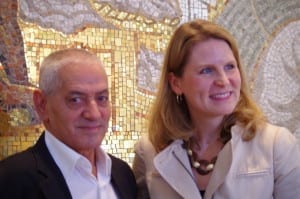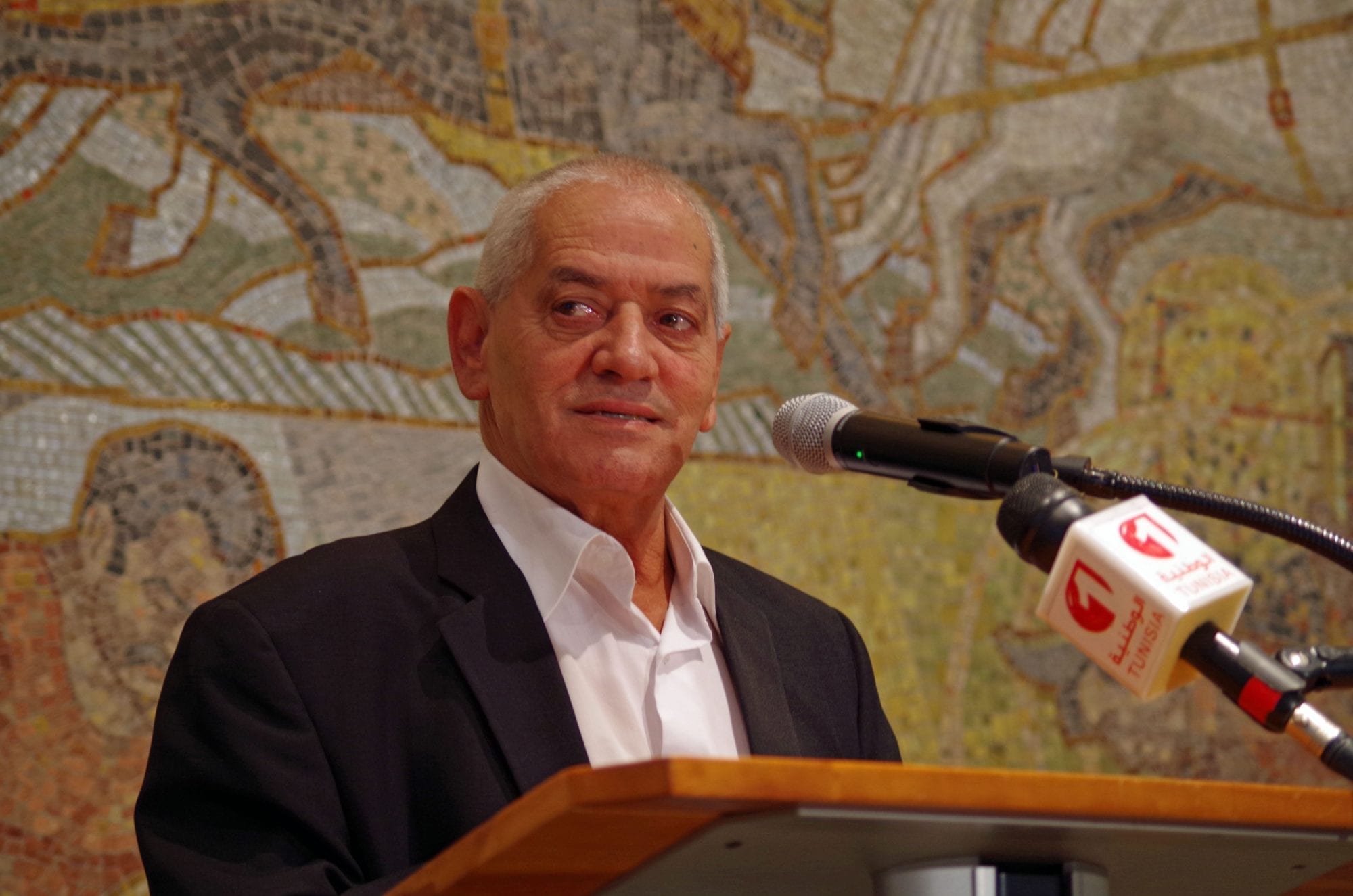The Tunisian General Labor Union (Union Générale Tunisienne du Travail, UGTT), a longtime Solidarity Center partner, was at the forefront of the four organizations that recently won the Nobel Peace Prize, AFL-CIO Secretary-Treasurer Liz Shuler said today. In a ceremony at the AFL-CIO honoring UGTT Secretary-General Houcine Abassi, Shuler praised Abassi’s courage and tenacity and called the UGTT’s work “inspirational to us in the United States.”

AFL-CIO Secretary-Treasurer Liz Shuler welcomed UGTT Secretary-General Houcine Abassi in a ceremony honoring his work. Credit: Solidarity Center/Kate Conradt
In his remarks, Abassi said “the Nobel Prize is not given just to us, but to all the labor movements in the world.” The award “sends a message that unions can play an equal role in government, in social dialogue … and many times can provide critical leadership.” Abassi is in Washington, D.C., this week to receive the Fairness Award presented by the Global Fairness Initiative. Solidarity Center ally Myrtle Witbooi, general secretary of the South African Domestic Service and Allied Workers Union, is a co-recipient of the award.
In October, the Nobel Committee recognized the Tunisian National Dialogue Quartet—comprised of the (UGTT); the Tunisian Confederation of Industry, Trade and Handicrafts; the Tunisian Human Rights League; and the Tunisian Order of Lawyers—for establishing “an alternative, peaceful political process at a time when the country was on the brink of civil war.”
Abassi described the many hours of dialogue in the months after the 2011 Arab uprising deposed longtime dictator Zine El Abidine Ben Ali and ushered in a period of economic and political uncertainty. As a key participant in the discussions, the UGTT succeeded in including collective bargaining rights and the right to strike in the country’s new constitution, which Tunisians approved in 2014. Through the UGTT’s efforts, the constitution also enshrines many more fundamental social and economic rights for Tunisians.
The Tunisian union movement has been in the forefront of the struggle for democracy and social equality since its formation in 1946. Following the country’s independence from colonial rule in 1956, the organization played a key role in establishing a road map for national development that made Tunisia the most advanced economy in the Arab Maghreb.
In the months after the 2011 uprising, the UGTT employed direct action when mass mobilization was needed to shore up democratic principles like women’s rights and freedom of speech, all top priorities for Tunisian unions.
“Ever since its founding, the UGTT went very much beyond the traditional role of labor unions,” pushing for freedom and democracy and inclusive participation of all civil society in governance, Abassi said.
This is the second consecutive year that worker rights activists and Solidarity Center allies have been honored with a Nobel Peace Prize. Last year Kailash Satyarthi, head of the Global March against Child Labor, shared the prize with girls’ education activist Malala Yousafzai.
In 2012, the UGTT received the AFL-CIO’s 2012 George Meany-Lane Kirkland Human Rights Award along with the labor federation of Bahrain, the General Federation of Bahrain Trade Unions, for their mobilization of thousands of people in their countries to carry forward a message of social justice during the 2011 uprisings.

